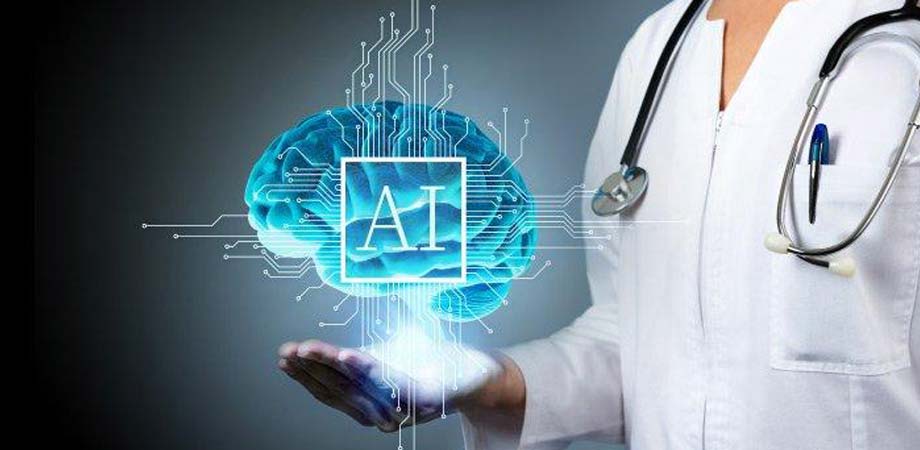Artificial Intelligence and Healthcare: Revolutionizing the Future of Healthcare Services
Introduction
Artificial intelligence (AI) has emerged as a transformative technology in the healthcare sector in recent years. This technology utilizes methods such as big data analysis, machine learning, and deep learning to facilitate medical diagnoses, treatment planning, and improvements in patient care. This article explores the use of artificial intelligence in healthcare, the innovations it brings to healthcare services, and its potential for the future. AI’s integration into healthcare is not just a trend but a fundamental shift in how medical care is delivered, offering unprecedented accuracy and efficiency.
Artificial Intelligence and Healthcare Services
Artificial intelligence has been integrated into various aspects of healthcare, revolutionizing how medical services are provided. From early diagnosis to personalized treatment plans, AI is reshaping the landscape of healthcare. Below are some of the most significant applications of AI in healthcare services:
- Medical Diagnoses: Artificial intelligence can analyze large volumes of patient data to diagnose diseases with greater accuracy than human doctors. Particularly in areas such as image recognition and biomedical analysis, AI systems can detect diseases, including cancer, in their early stages. AI-driven diagnostic tools are capable of processing vast amounts of data at speeds that far surpass human capabilities, leading to quicker and more accurate diagnoses. This early detection is critical in improving patient outcomes, as it allows for timely intervention and treatment.
- Treatment Planning: By analyzing patients’ individual medical histories and genetic profiles, artificial intelligence can generate personalized treatment plans. This can be applied in various areas, from determining drug dosages to surgical planning. AI systems are designed to consider the unique aspects of each patient, leading to more effective and tailored treatment strategies. For instance, in oncology, AI can help design personalized chemotherapy protocols based on a patient’s genetic makeup and the specific characteristics of their tumor, improving the efficacy of the treatment and minimizing side effects.
- Patient Care: Artificial intelligence can be used to monitor patients’ health conditions and reduce hospital stays. Smart sensors and monitoring systems can continuously track patients’ vital signs and detect potential complications early on. This continuous monitoring allows for immediate responses to any changes in a patient’s condition, which can prevent severe health issues and reduce the need for prolonged hospitalizations. AI can also support home healthcare by enabling remote monitoring, allowing patients to recover in the comfort of their homes while still under the supervision of healthcare professionals.

Innovations in Healthcare Services Enabled by Artificial Intelligence
Artificial intelligence has brought about significant innovations in healthcare, transforming the way medical services are delivered and improving patient outcomes. These innovations are key to the ongoing evolution of healthcare:
- Speed and Accuracy: Artificial intelligence accelerates the diagnostic process and provides more accurate results. This enables patients to receive treatment more quickly and benefit more effectively from healthcare services. For example, AI-powered imaging tools can analyze medical images in seconds, identifying issues that might take a human doctor much longer to diagnose. This speed not only saves valuable time but also increases the accuracy of the diagnosis, reducing the likelihood of human error.
- Personalized Treatment: AI considers patients’ individual characteristics and medical histories to create personalized treatment plans. This can enhance treatment outcomes and reduce side effects. Personalized treatment plans are crucial in managing complex conditions, where standard treatment protocols may not be effective. AI-driven personalization allows for adjustments based on real-time data and patient responses, ensuring that the treatment remains effective throughout the course of care.
- Increase in Efficiency: AI systems can reduce the workload of healthcare workers and optimize resource utilization. This leads to more efficient and sustainable healthcare services. For instance, AI can automate routine administrative tasks such as scheduling and billing, freeing up healthcare professionals to focus on patient care. Additionally, AI-driven predictive analytics can help hospitals manage resources more effectively by predicting patient admission rates, thus optimizing staffing levels and resource allocation.
Future Potential
Artificial intelligence is poised to become even more widespread in the healthcare sector in the future. Advancements in technology and increased access to data will further enhance the development of AI systems, allowing for more effective treatment of complex diseases. However, it is essential to address ethical and security concerns associated with this technology’s use. The potential for AI to transform healthcare is enormous, but it must be managed carefully to ensure that it is used responsibly and ethically. Issues such as data privacy, algorithmic bias, and the transparency of AI decision-making processes must be addressed to build trust among patients and healthcare providers.
Conclusion
Artificial intelligence plays a significant role in healthcare and will become even more prevalent in the future. This technology will enable patients to receive better treatment, enhance the efficiency of healthcare services, and drive significant innovations in the healthcare sector. As AI continues to evolve, its integration into healthcare will likely expand, bringing about even more profound changes. Embracing AI will be crucial for healthcare providers aiming to improve patient outcomes and optimize operational efficiency. The future of healthcare is undoubtedly intertwined with the advancements in artificial intelligence, making it a vital area of focus for the ongoing transformation of the industry.

Caption: AI is transforming healthcare by enhancing the speed and accuracy of diagnoses and treatment.
Description: This image illustrates the integration of artificial intelligence in healthcare, highlighting how AI technologies are revolutionizing the sector by improving diagnostic processes, personalizing treatment plans, and increasing overall efficiency in healthcare services.




